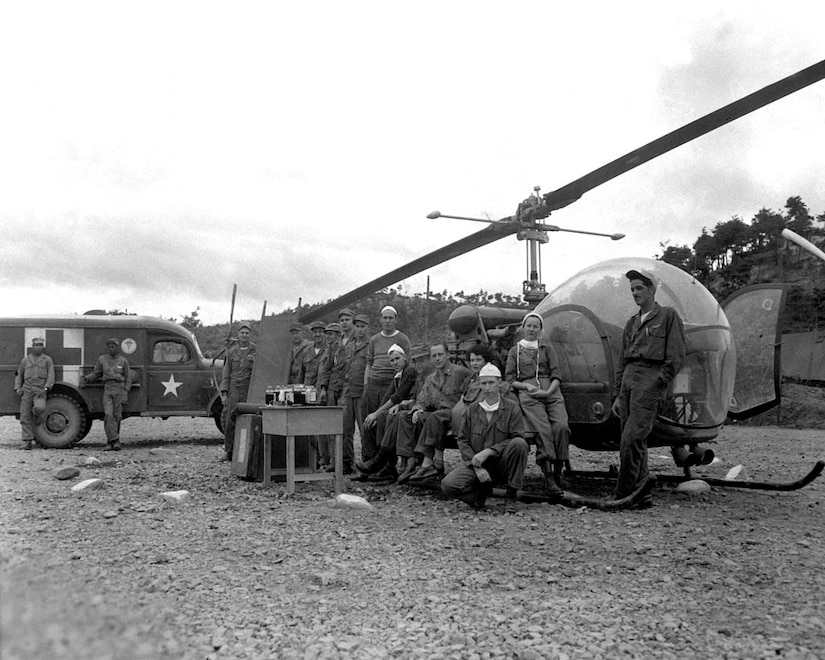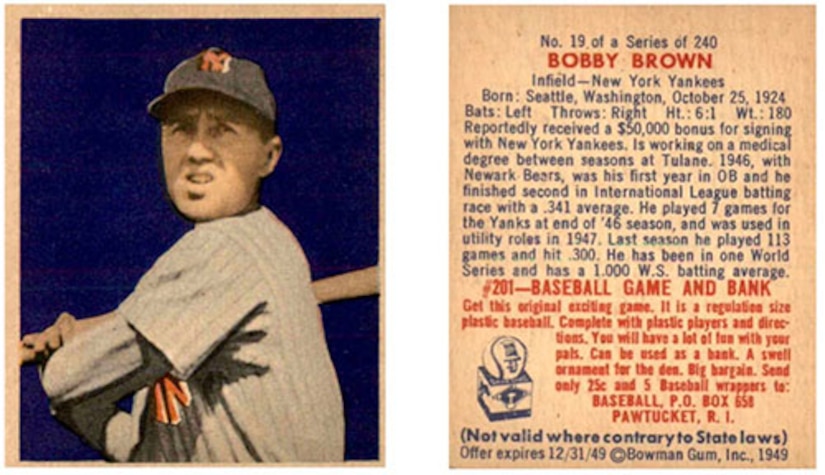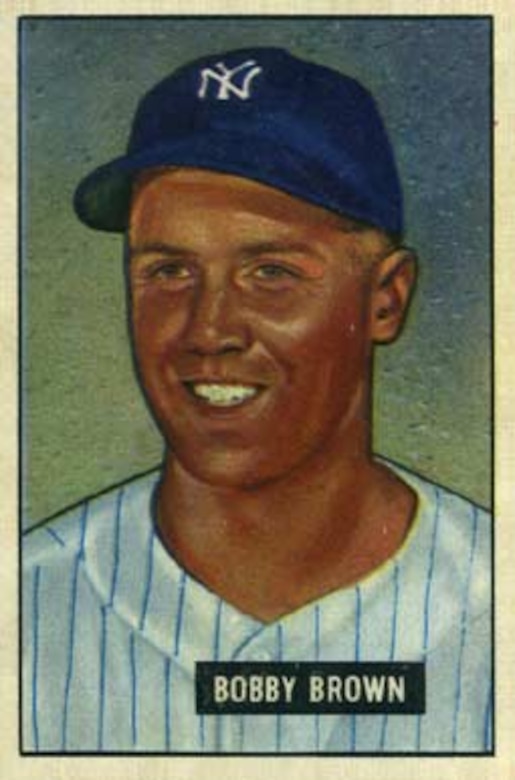Bobby Brown was a polymath — a person with broad-ranging abilities. He was a cardiologist, a World War II and Korean War veteran, and a four-time World Series champion.

Fame came early for Brown, who was born Oct. 25, 1924, in Seattle, Washington. In 1942, while a student at Stanford University, he and a fellow student rescued a Coast Guardsman from a plane crash. For his effort, he was awarded the Silver Lifesaving Medal by the Coast Guard.
The following year, he was drafted into the military and was assigned to the Naval Medical Center in San Diego, California.
Following World War II, he entered medical school at Tulane University in New Orleans, using his G.I. Bill. He received his medical degree in 1950.

In 1946, he was signed as a free agent with the New York Yankees, balancing baseball with his medical studies. The third baseman played with the Yankees from 1946 to 1952 and 1954 and was part of the team's World Series championship four times: 1947 and 1949-1951.
His lifetime batting average was .279 and he scored 22 home runs and 237 runs batted in. Incidentally, Brown batted left-handed and threw right-handed.

Brown didn't play in 1953 and part of 1952, because he was called up by the Army to serve in Korea for 19 months in the Medical Corps.
He ran the battalion aid station for the 160th Field Artillery Battalion of the 45th Infantry Division and also provided medical support for the 5th Regimental Combat Team. Later, he was transferred to the 8225th Mobile Army Surgical Hospital.

In 1954, Brown accepted a medical internship in cardiology. He opened a medical practice in Fort Worth, Texas, in 1958 and worked there until May 1974, when he took a leave of absence to serve as interim president of the Texas Rangers baseball team. He returned to his medical practice the following year.
In 1984, he became baseball's American League president, serving for 10 years.
Brown died on March 25 at his home in Fort Worth. He was 96.









No comments:
Post a Comment